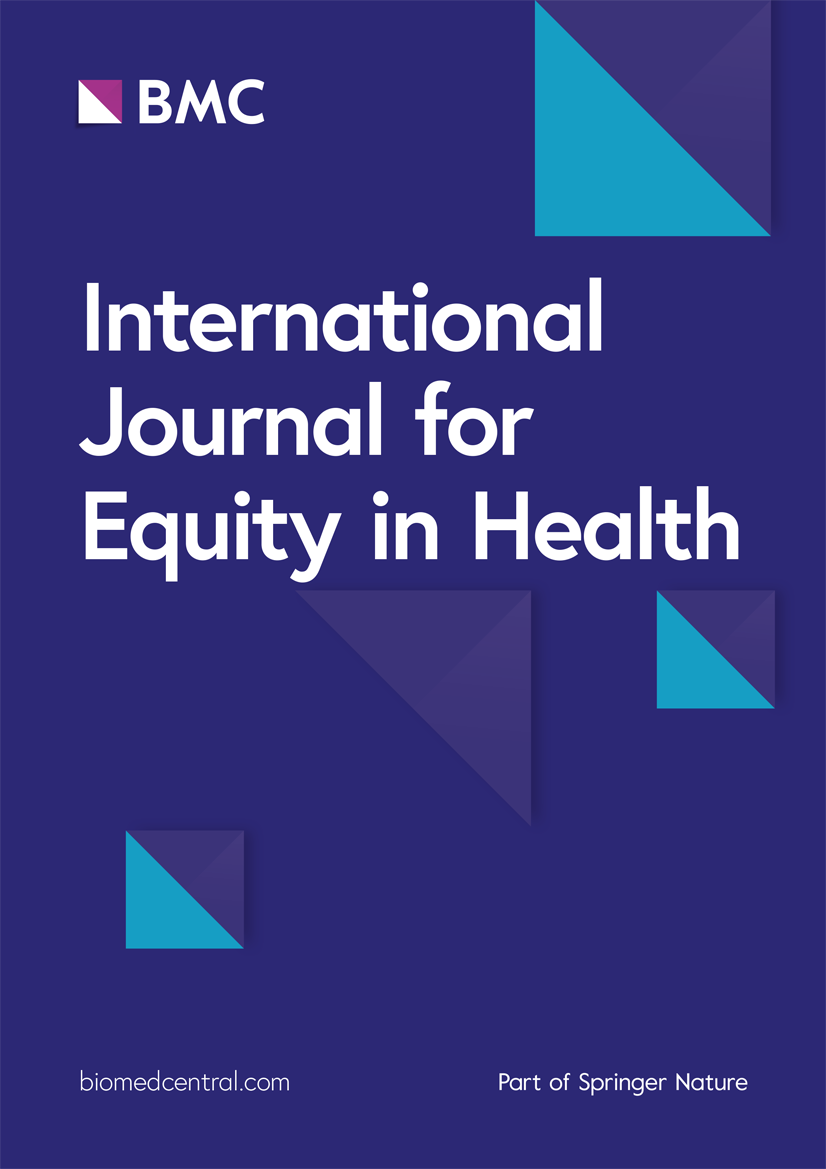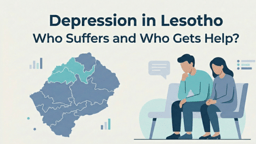Behind the Paper: Confronting Transphobia as a Public Health Crisis in the UK
Published in Social Sciences, Sustainability, and Biomedical Research

Background
In recent years, the United Kingdom (UK) has witnessed an alarming surge in transphobic policy and discourse. As clinician-researchers, public health practitioners, and grassroots activists, we felt compelled to respond to what we increasingly recognised as a real-time public health crisis. Our article, “Transphobia in the United Kingdom: a public health crisis,” is a call to action informed by a synthesis of the mounting evidence that trans, non-binary, and gender diverse (TGD) people in the UK are experiencing increasing disparities in healthcare access and health outcomes related to their marginalisation.
Transphobia as a multi-level threat
We approached the issue through a socio-ecological lens, identifying three nested systems of transphobic hostility:
- Macrosystem: National policies and legal decisions that restrict TGD rights, such as the UK Government’s unprecedented action to block Scotland’s Gender Recognition Reform Bill, and the 2025 Supreme Court ruling which mischaracterises “sex” as a binary and immutable characteristic
- Mesosystem: Press and social media environments amplify misinformation and dehumanising narratives about TGD individuals
- Microsystem: Interpersonal discrimination and violence, including a 200% rise in police-reported transphobic hate crimes since 2018.
These layers interact to create a hostile environment that marginalises TGD people, compromising their physical and mental health.
The Health Consequences of Transphobia
Our review of the literature and national data highlights stark and persistent health inequalities. TGD people in the UK face significant barriers to both general and gender-affirming healthcare, alongside increased rates of morbidity across a range of conditions and elevated mortality. They are also more likely to engage in health-related behaviours that carry risk, such as substance use. These disparities are not random—they are the foreseeable outcomes of structural inequities across the wider determinants of health, compounded by exposure to stigma. Minority stress frameworks help explain these patterns, linking stigma to poorer health via chronic psychological and physiological stress responses to discrimination.
One of the most alarming findings we highlight is the inadequacy of access to gender-affirming care. Waiting times for adult gender identity clinics now exceed four years, with a system that lacks the capacity for the UK TGD population. Recent policy changes have prohibited access to puberty blockers and restricted access to hormone therapy for young people. Coroner reports have linked lack of access to gender-affirming care with suicides among young TGD people.
Moreover, TGD people are often erased from health research and routine clinical data collection, making it difficult to fully understand or address the scope of these disparities. This erasure is both a symptom and a driver of systemic neglect.
What needs to change
We argue that addressing this crisis requires a coordinated, multi-sectoral response. Our recommendations include:
- Advocacy: Public health professionals must speak out against transphobic policies and support inclusive legislation
- Workplace Protections: Employers, especially in the public sector, should implement policies that affirm and protect TGD staff
- Research Reform: Funders and institutions must prioritise TGD health research and ensure inclusive data practices
- Community Investment: Public health teams should partner with LGBTQ+ organisations to co-produce services and interventions
- Education: Anti-trans stigma must be addressed through evidence-based educational initiatives, including in healthcare training
- Policy Change: The Equality Act should be amended to better protect TGD people, and the Gender Recognition Act should be demedicalised and expanded to include non-binary identities.
Looking Ahead
We hope this paper will serve as a resource for policymakers, clinicians, researchers, and advocates who are committed to health equity. Most importantly, we hope it affirms the experiences of TGD people and underscores the urgency of action.
The health and human rights of TGD people and all minoritised communities are a collective responsibility. We must act now.
Follow the Topic
-
International Journal for Equity in Health

This journal presents evidence relevant to the search for, and attainment of, equity in health across and within countries and publishes research which improves the understanding of issues that influence the distribution of health and healthcare within populations.
Related Collections
With Collections, you can get published faster and increase your visibility.
Racism and Health
The ongoing advancement of our understanding of how racism impacts health - both directly and structurally - is crucial for addressing the deep-rooted health inequities that persist globally. Structural racism shapes health outcomes among racialized populations, contributing to inequities in healthcare access and quality, and impacting social, political, or environmental determinants of health. Existing research also connects direct and visible manifestations of racism, such as major and everyday discrimination, to negative health outcomes. At the same time, racism does not operate in isolation. A growing body of research shows how it intersects with other systems of oppression—such as classism and patriarchy—and with broader social determinants of health, producing compounded and context-specific inequities. An intersectional lens is therefore essential to understand how overlapping structures of power and exclusion shape health and healthcare experiences. These insights are essential in conducting rigorous and thorough health research, guiding anti-racist health policy, and ultimately, ensuring equitable health for all.
Looking forward, research holds the potential to develop new methodologies and indices and unveil complexities in how racism manifests within healthcare systems and societal structures. By deepening our collective understanding, we can develop more effective interventions that target the root causes of health inequities.
We invite researchers to contribute to this special Collection on Racism and Health, focusing on advancing our understanding and addressing health inequities. Topics of interest include but are not limited to:
- Racism as a structural determinant of health
- Racism as a direct determinant of health
- Racialized health outcomes in different populations
- Intersectionality and inequities in health, healthcare access and quality
- Nexuses between social, political, and environmental determinants of health and systemic discrimination
- Anti-racist health policy frameworks and systems
- Impact of racism on mental health
- Health inequities in reproductive, maternal, and child health
- Obstetric and reproductive violence
- Community-based interventions for equitable health
- Decolonizing health research and global health epistemologies
We strongly encourage contributions from racialized scholars and authors with lived experience or expertise in addressing systemic discrimination in health research.
This Collection supports and amplifies research related to SDG 3, Good Health and Well-Being and SDG 10, Reduced Inequalities.
All submissions in this collection undergo the journal’s standard peer review process. Similarly, all manuscripts authored by a Guest Editor(s) will be handled by the Editor-in-Chief. As an open access publication, this journal levies an article processing fee (details here). We recognize that many key stakeholders may not have access to such resources and are committed to supporting participation in this issue wherever resources are a barrier. For more information about what support may be available, please visit OA funding and support, or email OAfundingpolicy@springernature.com or the Editor-in-Chief.
Publishing Model: Open Access
Deadline: Aug 14, 2026
Mental Health Inequities in Crisis: Insights from South-East Asia
The importance of advancing our collective understanding of mental health disparities during extraordinary crises, particularly in South-East Asia, cannot be overstated. As the region faces a multitude of challenges—ranging from natural disasters to public health emergencies—there is a pressing need to explore the variations in mental health impacts across different communities. Significant strides have been made in this area, including the identification of specific risk factors, the implementation of culturally sensitive interventions, and the recognition of mental health as a critical component of overall well-being. However, much work remains to be done. Future research has the potential to uncover new insights into the social determinants of mental health, enhance intervention strategies, and inform policies that promote equity. By deepening our understanding of these issues, we can better address the unique mental health challenges faced by vulnerable populations in the region.
We welcome all article types, including original research, reviews, meta-analyses, and perspectives.
We invite researchers to contribute to this special Collection. Topics of interest include but are not limited to:
-Socioeconomic & Geographic Disparities in Mental Health Access
-Community-Level Heterogeneity in Mental Health Outcomes
-Social Determinants of Mental Health in Crisis Contexts
-Culturally Adapted Mental Health Interventions
-Youth Mental Health in Crisis: Vulnerability and Resilience
-Gender and Mental Health: Differential Impacts and Responses
-Stigma, Barriers, and Facilitators to Mental Health Care
-Digital Mental Health Innovations in Low-Resource Settings
This Collection supports and amplifies research related to SDG 3, Good Health and Well-Being.
All submissions in this collection undergo the journal’s standard peer review process. Similarly, all manuscripts authored by a Guest Editor(s) will be handled by the Editor-in-Chief. As an open access publication, this journal levies an article processing fee (details here). We recognize that many key stakeholders may not have access to such resources and are committed to supporting participation in this issue wherever resources are a barrier. For more information about what support may be available, please visit OA funding and support, or email OAfundingpolicy@springernature.com or the Editor-in-Chief.
Publishing Model: Open Access
Deadline: Jul 30, 2026




Please sign in or register for FREE
If you are a registered user on Research Communities by Springer Nature, please sign in